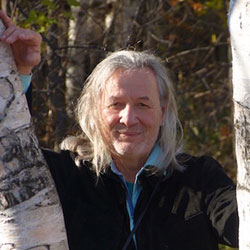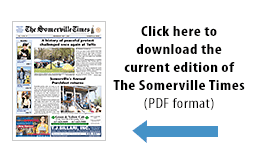
Richard Cambridge
By Lo Galluccio
Richard Cambridge was born in Suffern, NY, and grew up in Rivervale, New Jersey. He attended Northeastern University in 1967 and dropped out during the National Student Strike of May, 1970. He attended the Stonecoast creative writing program at the University of Southern Maine, in 2009, and graduated in 2011 with an MFA in Fiction. Pulsa, his poetry collection, was published in 2004 by Hanover Press. He’s been living in Cambridge since 1973. In 1992 Richard was one of four spoken word artists on the Boston team to win the National Slam tournament.
Lo Galluccio: You’re someone who writes both from personal experience and through the funnel of the imagination. Can you talk about your early work in poetry and how it relates to the personal or to the imaginative? Speak specifically about your book, Pulsa.
Richard Cambridge: Pulsa came out of a real series of events in May of 1970 and they were so profound I couldn’t even express what had happened. Finally, 23 years later I found the vehicle of what had happened to me using the story of the boy who God asked to give up his talent. I typed it out in the basement of the Harvard Science Center one day, February 24.
LG: How did you get into doing a theatre piece like The Cigarette Papers? What prompted you to want to stage that story of getting off nicotine?
RC: It was a constellation of getting to the point of understanding I would not be able to give it up, and being part of the Omega Theatre Arts, a nine-month intensive program that asked you to take your deepest fear and make art out of it. For me that was giving up cigarettes, my friend. In a very real way I wrote my way out of that addiction. The characters in the piece came from moments of going through withdrawal, when I would write down what was going on within me, and they came out as these demonic forces, like the Marlboro Man, the Dullards, and the Cookie Monster.
LG: You’ve written at least one novel, Ride, and are working on another one. When you decided to go to Stonecoast were you sure you wanted to concentrate on fiction rather than poetry? How did that experience shape Ride? And please tell us a bit about what that book’s about.
RC: It was clearly the main reason I went to Stonecoast – to gain access to the tools novelists use. I’d known I’d written it with the talents of a poet. I’d written a main draft and revised it once and my main reason for going to Stonecoast was to revise it again. It began as a memoir, as an actual experience, but pretty early on I started to re-invent it and change scenes and events and it was clearly more fun to do that.
Ride is about a journey from Cambridge to Asheville, NC for a poetry gig. My car had broken down and I felt that I could stick out my thumb (hitchhike) to get there. The structure is the rides who picked me up and the tension was about whether I was going to get there in time for the reading. It started on May 4, 1994 when my poet-friend Danny Solis, dropped me off at the Mass Pike exit at Newbury Street. It was 1000 miles to Asheville. I had to get there by Friday night, two days away. Practically no one was picking up hitchhikers in the 90s and I kept getting rides going in the wrong direction, that took me further west than south. My dissertation was the revision of the novel, which is bound in the Stonecoast archives.
LG: You’ve hosted The Poets’ Theatre for many years. What is that series about for you? What has that experience been like? What are some of the highlights?
RC: I’ve hosted the Poets’ Theatre since 1995. Tim Mason, who was booking Club Passim, offered me a monthly series which ran until 2010. Since then, it’s been in the Café at Somerville’s Arts at the Armory, the third Friday of every month. Poets’ Theatre evolved out of the open mic scene in the early 90s, which included not just poets, but musicians, storytellers, stand-up comics, dancers – many artistic disciplines. As I began to grow as a poet I realized I needed more than my own talent to flesh out a story I wanted to tell. Being friends with many people on the scene I knew just who I wanted to ask to participate. One production, inspired by Howard Zinn’s A People’s History of the United States, examined the Columbus Quincentenial through an Indigenous perspective. It was called Where the Red Road Runs.
I read the first draft of my novel, Ride, from July 5, 2006, to November 5, 2008, in four-minute segments at the Cantab Lounge open mic. It was like a weekly serial and it had kind of following. The final night was a 30-minute feature — finally arriving in Asheville. And that was a big highlight.
LG: Talk a little about your new novel, the one you’ll be reading from on April 7 at the Lilypad. What’s the source for the work? How is it different from your other works? Is it a political novel?
RC: It centers around the year 1970 and the tumultuous events that happened around the National Student Strike and the Black Panther’s Revolutionary People’s Constitutional Convention.
The F.B.I. was afraid the Panthers free breakfast program was raising a new generation of revolutionaries – a generation of Martin Luther Kings. If you look at the Panthers’ Ten-Point Program for the community and allow those things to come to pass and flourish, where you’d wind up is a country like Wakanda in the Black Panther film, where people were allowed to develop their talents and prosper. They were creating a future that was cut off. The novel is an attempt to create a space where that alternate future came to pass. It’s called 1970. I’m about a third of the way into it.
LG: What’s the best thing about being a writer? I know you also play the harp and do other things (graffiti), but what is it about writing that holds your attention, that makes you want to continue to develop?
RC: It’s like being a creator with a little “c.” Someone once asked Dorothy Parker if she believed in God and she said “Yes, when I’m writing.” It’s one of the most beautiful experiences I can imagine – something higher than just language – story – not just poetry and essays. It’s almost as if you’re writing your way into your experience and living your existence that way. I couldn’t imagine wanting to do anything else. I owe everything in my life to my teachers. They’re the stepping stones that allowed me to cross that wild river of creativity.
Lo Galluccio will be hosting a reading with Richard Cambridge along with two other Stonecoast Alumni writers, Michelle Soucy Martel and Tom MacDonald, on April 7 at the Lilypad in Cambridge at 7:30 p.m. The event is free and open to the public.












A totally absorbing interview. Richard’s life fascinates me, as it is the stuff of his work. I’m anxious to read Pulse.